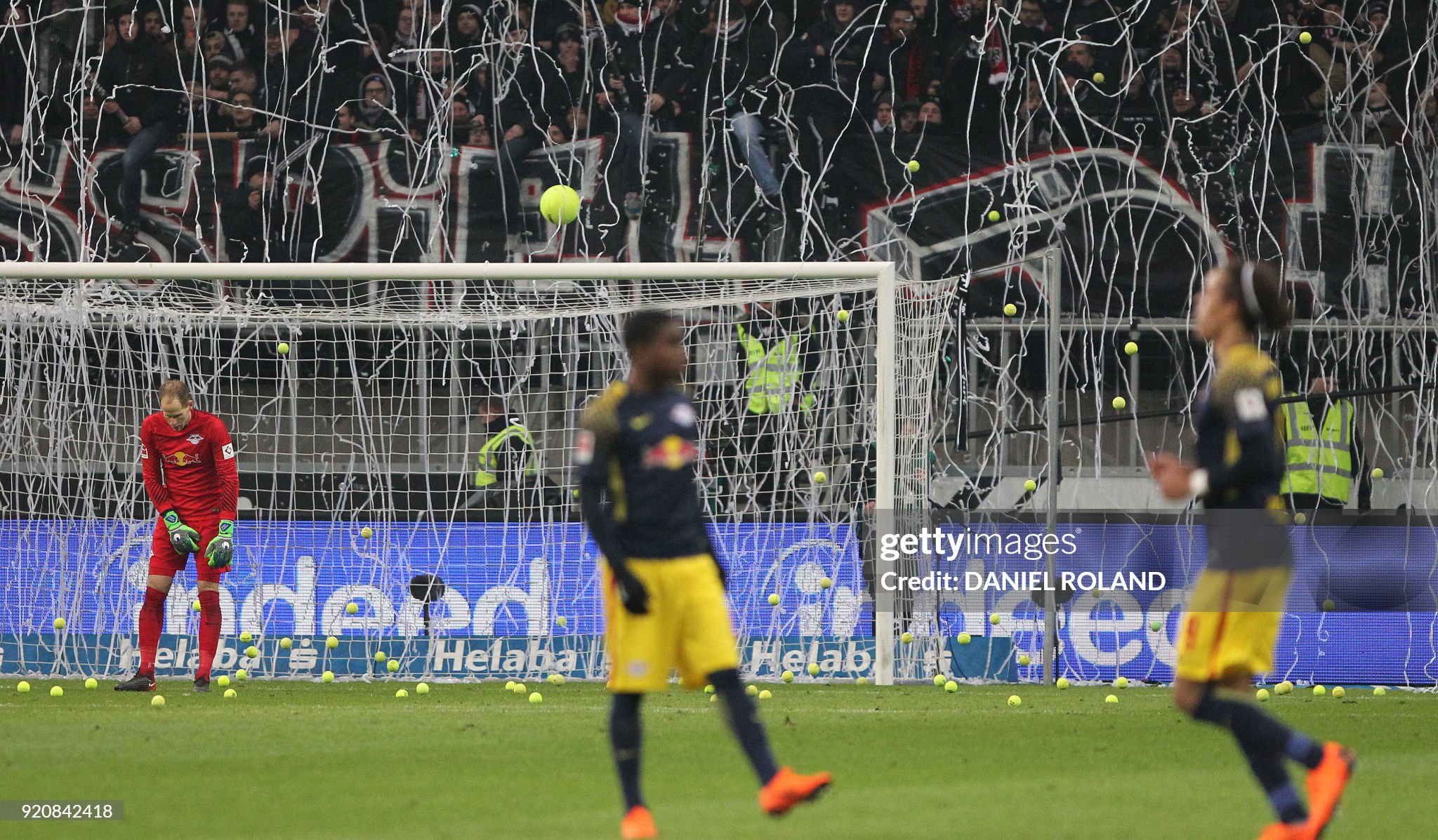For several weeks now, it has become common in German matches for games to be interrupted because supporters, as a form of protest, throw various objects onto the field, ranging from chocolate coins to tennis balls. Axel Hellmann, the CEO of Eintracht Frankfurt, has had enough.

The ongoing protests in German football have been triggered by a controversial plan to allow investors to buy stakes in the Deutsche Fussball Liga (DFL), the governing body responsible for overseeing the Bundesliga and the 2. Bundesliga.
This move, which challenges the traditional ownership structure of football clubs in Germany where members often hold decision-making power, has sparked considerable debate and discontent among fans.
Axel Hellmann, the General Manager of Eintracht Frankfurt, has emerged as a vocal critic of these protests and the disruption they have caused during matches. He contends that it's time to bring an end to the protests, especially after a recent incident where the game between Hertha BSC and HSV was halted for more than half an hour due to various objects strewn across the Olympiastadion pitch.
The unexpected sight of tennis balls being thrown onto the field during Hertha's match left Hellmann bewildered, considering the club's engagement with multiple financial backers. He questions whether this is ultimately beneficial for the overall competitiveness of the league.
Hellmann adopts a firm stance, suggesting that if the protests continue unabated and hinder the league's unity, it may result in more such arrangements where external investors are courted. He challenges the notion that these developments would exacerbate income inequality within the league, asserting that they are, in fact, aimed at preserving unity among the 36 participating clubs for a substantial 20-year period.
Furthermore, Hellmann dismisses criticism that accepting funds from the authoritarian Saudi Arabian regime is morally incorrect. He argues against applying such standards selectively, suggesting that if one were to consider these investments unethical, it should lead to broader lifestyle changes, such as abstaining from using gasoline or turning off gas heating systems in homes. He urges caution against falling into the trap of hypocrisy and emphasizes the need for a more balanced perspective.
In the midst of these protests and debates, Lutz-Michael Fröhlich, the head of referees for the DFL, also calls for action. He proposes a potential solution to the disruptions by suggesting that teams be kept on the sidelines before being allowed onto the pitch, thus minimizing the impact of objects being thrown onto the field. Fröhlich seeks support from the DFL in addressing the issue, as he underscores that referees should not be held responsible for the problems arising within the stadiums.
These developments highlight the complex interplay between the evolving financial landscape of football, the passionate fanbase in Germany, and the ongoing efforts to maintain the integrity and competitiveness of the league.